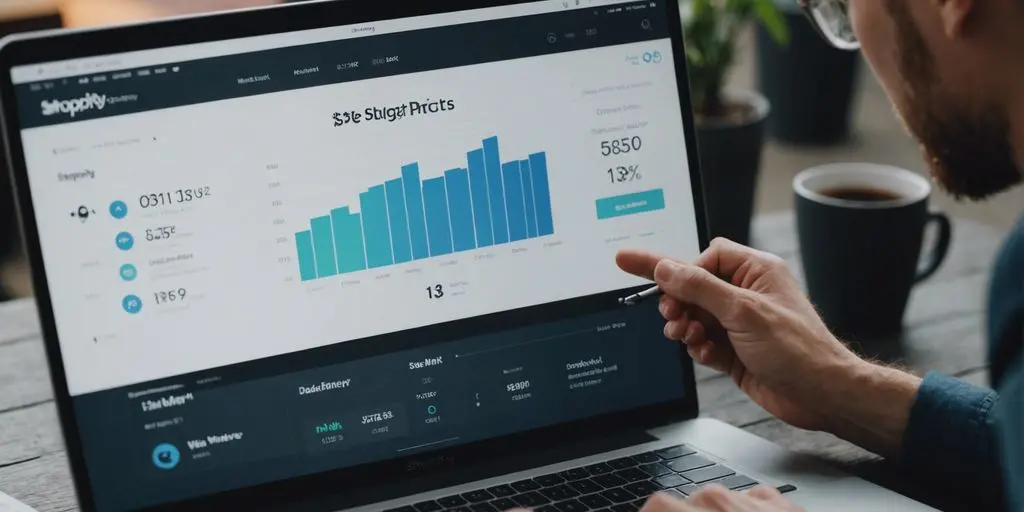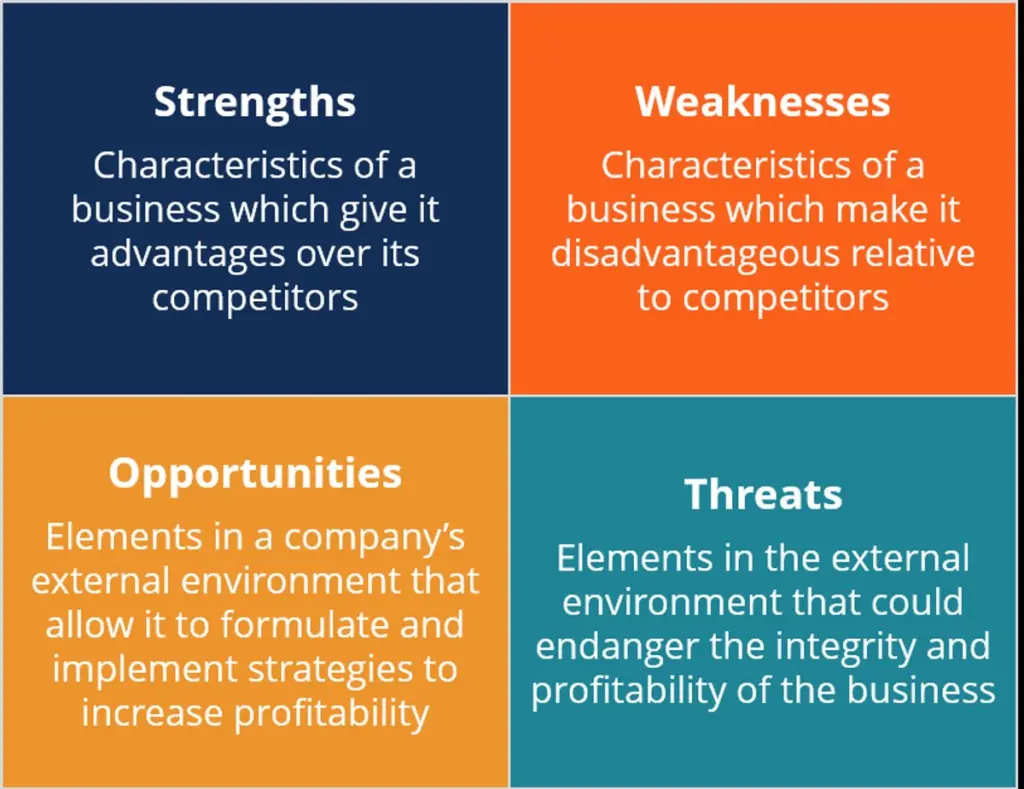Keywords play a crucial role in online search and SEO. Keyword research is very crucial to find the right ones. They impact website ranking, help identify target audience, and improve content optimization. As part of digital marketing, a brand must master keyword research to target the right audience for the content they want to push for. In this article, we will explore the importance of keywords, how to choose the right ones, optimize content with keywords, and monitor keyword performance. Here are the key takeaways:
Table of Contents
ToggleKey Takeaways
- Understanding the importance of keywords in search and SEO
- Identifying your target audience and researching relevant keywords
- Using keyword research tools effectively
- Avoiding common keyword mistakes
- Optimizing content with keyword-rich titles, headings, meta descriptions, alt text, and URLs
Understanding the Importance of Keywords

Why Keywords Matter in Search
Understanding the importance of keywords is crucial for a successful SEO campaign. Keyword research can be the difference between a wildly successful SEO campaign that makes your business tons of money and an utter waste of time and money. While search volume is often the first metric people look at when researching keywords, it can be deceiving.
The raw number of people searching for something doesn’t necessarily translate to earning potential. Instead, focus on long-tail keywords that are more specific and relevant to your target audience. These keywords may have lower search volume but can lead to higher conversion rates and better ROI.
The Role of Keywords in SEO
Keywords play a crucial role in SEO. They are the key to unlocking the potential of your website and driving organic traffic. By targeting the right keywords, you can ensure that your content is reaching the right audience at the right time. But how do you choose the right keywords? Here are some tips:
- Identify Your Target Audience: Understand who your audience is and what they are searching for.
- Research Relevant Keywords: Use keyword research tools to find keywords that are relevant to your industry and have high search volume.
- Avoid Common Keyword Mistakes: Don’t fall into the trap of using generic or overly competitive keywords. Instead, focus on long-tail keywords that are more specific and have less competition.
Remember, choosing the right keywords is the foundation of a successful SEO strategy. So take the time to research and select the keywords that will help your website rank higher and attract more organic traffic.
How Keywords Impact Website Ranking
Keywords play a crucial role in determining the ranking of a website in search results. When someone searches for a specific keyword, search engines like Google analyze various factors to determine which websites are most relevant and valuable.
If your website is not optimized for the keywords that users are searching for, you may miss out on potential customers and lose them to your competitors. By understanding the importance of keywords and implementing effective keyword strategies, you can improve your website’s ranking and attract more organic traffic.
Here are some key points to consider:
- Relevance: It’s important to choose keywords that are relevant to your business and target audience. This ensures that your website appears in search results when users are looking for products or services like yours.
- Competition: Some keywords may have high competition, making it difficult to rank for them. It’s important to conduct thorough keyword research to identify less competitive keywords that still have a good search volume.
- User Intent: Understanding the intent behind a keyword search is crucial. By aligning your content with user intent, you can provide valuable information and increase the chances of ranking higher in search results.
Remember, optimizing your website for keywords is an ongoing process. Regularly monitor your keyword performance, analyze the results, and make necessary adjustments to your keyword strategy.
Keyword Research: Choosing the Right Keywords

Identifying Your Target Audience
Understanding your target audience is crucial when it comes to keyword research. By identifying the attributes of your audience in relation to your product, you can create a well-rounded buyer persona that will help you come up with a wide range of keywords. This information will not only allow you to optimize your site to attract users who are browsing for your product, but also help you outrank your competitors with well-targeted content. To get started, list the attributes of your target audience and think about how your product can benefit them.
Researching Relevant Keywords
When it comes to researching relevant keywords, there are a few key steps you should follow to ensure you’re targeting the right terms for your SEO campaign. Here’s a quick breakdown:
- Start with a seed keyword: Begin by entering a keyword that describes your topic into a keyword research tool. This will give you a starting point for finding related keywords.
- Explore competitor-based research: Another method is to analyze the keywords your competitors are targeting. This can help you uncover new keyword opportunities and gain insights into what’s working in your industry.
- Determine keyword popularity: As you conduct your research, pay attention to the popularity of each keyword. Look for terms that have a high search volume but aren’t overly competitive.
- Consider user intent: It’s important to think about the intent behind each keyword. Are people searching for information, looking to make a purchase, or seeking a specific solution? Understanding user intent will help you choose keywords that align with your content goals.
- Refine your keyword list: Once you’ve gathered a list of potential keywords, narrow it down to the most relevant and valuable terms. Focus on quality over quantity to ensure you’re targeting keywords that can truly drive results.
Remember, keyword research is an ongoing process. Continuously monitor and analyze your keyword performance to make adjustments and optimize your SEO strategy.

Using Keyword Research Tools
When it comes to finding, analyzing, and using keywords, a keyword research tool is your secret weapon. It saves you time, offers valuable data, and gives you a competitive advantage. There are two basic methods to approach keyword research in a tool: search based on a seed keyword and competitor-based research.
By entering a seed keyword into the tool, you can discover a list of relevant keywords sorted by relevance. Additionally, a quality tool provides SEO metrics like search volume, keyword difficulty, and SERP data to help you choose the right keywords.
Avoiding Common Keyword Mistakes
Steering clear of keyword faux pas is not just about avoiding the no-no’s; it’s about embracing a strategy that sings to the tune of quality over quantity. Here’s a quick rundown to keep your keyword game on point:
- Focus on one keyword per page to ensure a coherent message.
- Write comprehensive articles that delve into the subject matter, rather than skimming the surface.
- Remember, keyword stuffing is as outdated as floppy disks—keep it natural!
- LSI keywords are a myth; don’t get tangled in over-optimization.
The golden rule? If it feels forced, it probably is. Let keywords flow with the rhythm of your content.
By prioritizing these practices, you’ll not only dodge common pitfalls but also compose a symphony that resonates with both search engines and real, live humans.
BONUS: Keyword Research into Lead Generator
Optimizing Your Content with Keywords

Creating Keyword-Rich Titles and Headings
When it comes to creating keyword-rich titles and headings, it’s important to strike the right balance. You want to include your target keyword to optimize for search engines, but you also want to make sure your titles and headings are compelling and engaging for readers. Here are some tips to help you create effective titles and headings:
- Use bold formatting for your important keyword to make it stand out.
- Keep your titles and headings concise and to the point.
- Incorporate subtle emphasis with italics where needed.
- Avoid keyword stuffing and focus on natural integration.
- Make sure your titles and headings accurately reflect the content of your page.
Remember, the goal is to attract both search engines and human readers with your titles and headings. So, be informative, witty, and captivating!
Writing Compelling Meta Descriptions
When it comes to writing meta descriptions, it’s important to strike a balance between providing relevant information and enticing users to click. Create unique descriptions for each page on your site, highlighting the key features or benefits of the content.
Keep the descriptions concise and compelling, using subtle emphasis to draw attention to important details. Remember, meta descriptions are like a sneak peek into your page, so make them intriguing enough to make users want to learn more. Here are some tips to help you write compelling meta descriptions:
- Include relevant information about the content in the description
- Use subtle emphasis to draw attention to important details
- Keep the descriptions concise and compelling
- Make the descriptions intriguing enough to make users want to learn more
Tip: Don’t forget to review the meta titles and descriptions of the top-ranking pages for your target keywords. This can give you insights into the angle they took and how they are monetizing the page.
Integrating Keywords Naturally in Content
When it comes to integrating keywords naturally in your content, there are a few important principles to keep in mind. First, think of keywords as topics rather than just individual words. Organize your articles into content hubs or topic clusters to create a cohesive structure. This not only helps with keyword optimization but also provides a better user experience.
Second, write naturally and cover the topic thoroughly. Don’t try to artificially insert keywords into your content just for the sake of it. Instead, focus on creating high-quality, comprehensive content that satisfies users’ needs. Finally, don’t feel the need to use every single related keyword. You may actually rank for keywords you didn’t even use in your text. The key is to create valuable content that resonates with your audience and addresses their search intent.
Using Keywords in Image Alt Text
When optimizing your website for search engines, it’s important to consider all aspects of your content, including the image alt text. Image alt text is the text that appears when an image cannot be displayed, and it plays a crucial role in both accessibility and SEO. Here are some tips for using keywords effectively in your image alt text:
- Be descriptive: Use keywords that accurately describe the image and its context.
- Keep it concise: Alt text should be brief and to the point, providing a clear description without being too lengthy.
- Avoid keyword stuffing: While it’s important to include relevant keywords, avoid overloading your alt text with excessive keywords.
- Use natural language: Write alt text that flows naturally and is easy for users to understand.
By following these tips, you can ensure that your image alt text is optimized for both search engines and users, enhancing the overall visibility and accessibility of your website.
Optimizing URLs with Keywords
When it comes to optimizing URLs with keywords, there are a few key strategies to keep in mind:
- Keep it concise: Short and simple URLs are not only easier for users to remember, but they also tend to perform better in search engine rankings. Avoid long, convoluted URLs that include unnecessary words or characters.
- Include your target keyword: Incorporating your target keyword into the URL can help search engines understand the relevance of your page. However, be careful not to overdo it or make the URL look spammy.
- Use hyphens to separate words: When creating URLs, use hyphens to separate words instead of underscores or spaces. This makes it easier for search engines to read and interpret the URL.
- Avoid keyword stuffing: While it’s important to include your target keyword in the URL, avoid stuffing it with too many keywords. This can make the URL look unnatural and may even result in a penalty from search engines.
Remember, optimizing your URLs with keywords is just one aspect of a comprehensive SEO strategy. By following these best practices, you can improve the visibility and ranking of your web pages.
Monitoring and Analyzing Keyword Performance

Tracking Keyword Rankings
Tracking keyword rankings is a crucial part of any successful SEO strategy. By monitoring how your website ranks for specific keywords, you can gain valuable insights into the effectiveness of your optimization efforts. But it’s not just about tracking the numbers. It’s about understanding what those rankings mean and how they impact your overall digital visibility.
Here are some key reasons why tracking keyword rankings is important:
- Benchmarking: Tracking your keyword rankings allows you to compare your performance against competitors and industry standards. It helps you identify areas where you’re excelling and areas where you need to improve.
- Identifying Opportunities: By analyzing your keyword rankings, you can uncover new opportunities for optimization. You may discover keywords that you’re ranking well for and can further optimize to increase your visibility. Or you may find keywords that you’re not ranking for but have the potential to drive significant traffic.
- Evaluating Strategy: Tracking keyword rankings helps you evaluate the effectiveness of your SEO strategy. If you’re consistently ranking higher for certain keywords, it’s a sign that your optimization efforts are paying off. On the other hand, if you’re consistently dropping in rankings, it may be time to reevaluate your approach and make necessary adjustments.
In summary, tracking keyword rankings provides valuable insights into the performance of your SEO efforts. It helps you benchmark your performance, identify optimization opportunities, and evaluate the effectiveness of your strategy.
Analyzing Keyword Conversion Rates
Once you have implemented your keyword strategy and optimized your content, it’s time to analyze the performance of your keywords. One important metric to consider is keyword conversion rates. This metric measures the percentage of website visitors who take a desired action, such as making a purchase or filling out a contact form, after clicking on your website from a search engine result page.
Analyzing keyword conversion rates can provide valuable insights into the effectiveness of your keywords and help you make data-driven decisions to improve your website’s performance. Here are some key steps to consider when analyzing keyword conversion rates:
- Identify high-converting keywords: Look for keywords that have a high conversion rate and bring in valuable traffic to your website. These keywords indicate that your content is resonating with your target audience and driving them to take action.
- Optimize low-converting keywords: On the other hand, if you have keywords with a low conversion rate, it may be worth optimizing your content or adjusting your keyword strategy to better align with your audience’s needs and preferences.
- Track keyword performance over time: Monitor the performance of your keywords regularly to identify trends and patterns. This will help you understand how changes in your content or keyword strategy impact conversion rates.
- Experiment with different variations: Test different variations of your keywords to see which ones perform best. This can include variations in wording, phrasing, or targeting specific audience segments.
By analyzing keyword conversion rates, you can gain valuable insights into the effectiveness of your keyword strategy and make data-driven decisions to improve your website’s performance.
Identifying Keyword Opportunities
After conducting thorough keyword research and analyzing your competitors, it’s time to uncover those hidden gems that can give you an edge in the search rankings. Here are some effective strategies for identifying keyword opportunities:
- Content Gap Analysis: Spy on your competition by plugging their site into a keyword tool and analyzing their keywords. Tools like Ahrefs’ Content Gap Analysis can provide valuable insights into keywords your competitors are ranking for.
- Long-tail Keyword Research: Don’t overlook the power of long-tail keywords. These longer, more specific phrases may have lower search volume but can attract highly targeted traffic.
- User Intent Analysis: Understand the intent behind search queries to identify keywords that align with your target audience’s needs. Consider the different types of user intent, such as informational, navigational, and transactional, and optimize your content accordingly.
- Social Listening: Monitor social media platforms, forums, and online communities to identify trending topics and keywords related to your niche. Engage with your audience and gather valuable insights that can inform your keyword strategy.
Remember, finding keyword opportunities is an ongoing process. Continuously monitor and adapt your keyword strategy to stay ahead of the competition.
Adjusting Keyword Strategy
Adjusting your keyword strategy is a crucial step in optimizing your content for search engines. As search engine algorithms evolve, it’s important to stay up-to-date and adapt your keyword strategy accordingly. Here are some tips to help you adjust your keyword strategy:
- Stay informed: Keep track of the latest trends and updates in the world of SEO. Stay ahead of the game by regularly reading industry blogs and attending webinars.
- Analyze data: Use analytics tools to monitor the performance of your keywords. Identify which keywords are driving the most traffic and conversions, and adjust your strategy accordingly.
- Experiment and iterate: Don’t be afraid to try new keywords and variations. Test different strategies and see what works best for your audience.
- Keep an eye on the competition: Monitor your competitors’ keyword strategies and identify opportunities to differentiate yourself. Look for gaps in their strategy and capitalize on them.
Remember, adjusting your keyword strategy is an ongoing process. Stay flexible and be willing to adapt as needed to ensure your content remains relevant and optimized for search engines.
Monitoring and analyzing keyword performance is crucial for any website owner. By understanding which keywords are driving traffic to your site and how they are performing, you can make informed decisions to optimize your content and improve your search engine rankings.

At CWORKS, we specialize in helping businesses monitor and analyze keyword performance. Our team of experts will provide you with valuable insights and recommendations to enhance your online presence. Contact us now through our contact page to discuss your business needs and achieve remarkable success together with CWORKS. Let’s get started!
Wrapping It Up: The Keyword Quest
And there you have it, fellow search-savvy scholars and digital detectives! We’ve traversed the terrain of keyword searching, from the quick and nimble brainstorming sessions to the strategic use of research tools. Remember, whether you’re sifting through the vast expanses of Google Scholar or crafting the perfect query in KWFinder, the key is to know your niche and keep your searches simple.
Don’t be afraid to mix and match terms, and always keep a keen eye on the results—too many or too few can mean it’s time to tweak your approach. Now, armed with the knowledge of finding, analyzing, and using keywords, you’re ready to conquer the content cosmos and make your mark in the world of words!
FAQs
What is the importance of keywords in search?
Keywords are important in search because they help search engines understand the content of a webpage and match it to relevant search queries. By using the right keywords, you can improve your website’s visibility and attract more organic traffic.
How do keywords impact website ranking?
Keywords play a crucial role in website ranking as search engines use them to determine the relevance of a webpage to a search query. Websites that are optimized with the right keywords are more likely to rank higher in search engine results pages.
How can I identify my target audience for keyword research?
To identify your target audience for keyword research, you can start by analyzing your existing customer base and conducting market research. Understanding the demographics, interests, and needs of your target audience will help you choose keywords that resonate with them.
What are some common keyword research tools?
There are several keyword research tools available, such as Google Keyword Planner, SEMrush, Moz Keyword Explorer, and Ahrefs. These tools provide insights into search volume, competition, and related keywords, helping you find the right keywords for your content.
How can I optimize my content with keywords?
To optimize your content with keywords, you can include them in your titles, headings, meta descriptions, content body, image alt text, and URLs. However, it’s important to use keywords naturally and avoid keyword stuffing, as it can negatively impact user experience and SEO.
How can I monitor and analyze keyword performance?
You can monitor and analyze keyword performance by tracking keyword rankings, analyzing keyword conversion rates, identifying keyword opportunities, and adjusting your keyword strategy accordingly. Tools like Google Analytics and SEMrush can help you gather data and insights for effective keyword analysis.








































































































